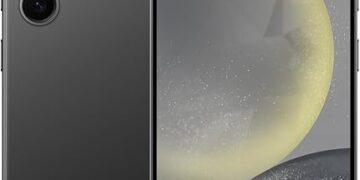In a world where data breaches are at an all-time high, Apple and Google have stepped up their game with their respective data protection programs. Aimed at individuals with extremely sensitive data, such as journalists, activists, and business executives, these programs offer advanced encryption and physical security keys to minimize unauthorized access. While both programs require the use of a physical security key for account authentication, they also have their unique features. Google’s program includes stringent checks on downloads and preventing unverified account access, while Apple’s program offers iMessage Contact Key Verification and Advanced Data Protection for iCloud. So, whether you’re an Apple enthusiast or an Android advocate, these programs have got your back when it comes to safeguarding your data.
Apple’s Advanced Protection Program vs Google’s Advanced Protection Program: Which One Should You Choose?
Digital threats are a constant concern in today’s world, and tech giants like Apple and Google are stepping up their game to protect user data. Both companies have introduced advanced security programs aimed at individuals with sensitive data, utilizing end-to-end encryption and physical security keys to ensure maximum protection. In this article, we will compare Apple’s Advanced Protection Program and Google’s Advanced Protection Program, highlighting their features and helping you make an informed decision about which one is right for you.
What’s the goal of Apple’s and Google’s programs?
The primary goal of both programs is to provide enhanced data protection for individuals with sensitive data. While anyone can sign up for these programs, they are specifically targeted towards individuals such as journalists, activists, business executives, election officials, and diplomats who carry extremely sensitive data on their devices.
However, for everyday users who only use their iCloud or Google Drive storage for cat pictures, these programs may seem unnecessary. The programs require the use of physical security keys, which can deter some users. But in an era where data breaches are on the rise, these programs are becoming increasingly valuable.
Physical security keys offer an extra layer of protection
One thing that both Apple’s and Google’s programs have in common is the requirement for a physical security key. These keys act as a form of two-factor authentication, making it nearly impossible for malicious actors to access your accounts through phishing scams. A physical security key is a simple and effective way to authenticate account access and is recommended by experts as the best way to secure online accounts.
Google has also introduced Passkeys, which can be used as a replacement for traditional passwords and other sign-in systems. These Passkeys can be used with a local PIN or a device’s biometric authentication and are available on Apple devices with iOS 16.
What’s in the Google Advanced Protection Program?
Google’s Advanced Protection Program offers several key features to ensure comprehensive data protection. Firstly, it includes stringent checks on downloads, going beyond the standard Safe Browsing feature available on Google Chrome. Potentially harmful files are flagged, and Android phones can only download from verified app stores.
Furthermore, the program restricts access to your Google account data. Only Google and verified third-party apps can access your account data, and they can only do so with your permission. This prevents malicious actors from impersonating third parties to access your account data.
What’s in the Apple Advanced Data Protection program?
Apple’s Advanced Data Protection program focuses on providing enhanced security for Apple ID and iMessage. The program requires a security key for Apple ID, adding an extra layer of protection to your account.
In addition to that, Apple offers iMessage Contact Key Verification. This feature allows users to verify that they are only messaging the intended recipients. If someone breaches the servers and eavesdrops on a conversation, both participants receive an automatic alert. Verification can also be done through FaceTime or a secure call.
However, it’s worth noting that for iMessage Contact Key Verification to work, both recipients need to use iMessage and be signed up for the program. Although this feature was expected to be available worldwide, Apple has yet to release it, and it remains to be seen when it will be officially launched.
Which program is right for you?
Choosing between Apple’s Advanced Protection Program and Google’s Advanced Protection Program depends on various factors. Firstly, consider your device preference. If you are an Apple user and heavily rely on Apple services, Apple’s program might be the better fit for you. On the other hand, if you prefer Android devices and Google services, Google’s program might be more suitable.
Secondly, consider your specific needs. If you frequently store and exchange sensitive data through iMessage and want an additional layer of security, Apple’s program with iMessage Contact Key Verification could be the right choice for you. On the other hand, if you prioritize stringent checks on downloads and restricting access to your Google account data, Google’s program might be more appealing.
Lastly, evaluate the features offered by both programs and weigh their importance to you. Consider the level of protection provided, the ease of use, and any additional benefits or drawbacks that may sway your decision.
Ultimately, the choice between Apple’s Advanced Protection Program and Google’s Advanced Protection Program depends on your individual needs, preferences, and priorities. Take the time to thoroughly understand the features and benefits of each program before making an informed decision.
Conclusion
In an increasingly digital world where data breaches are on the rise, data protection has become a crucial concern. Both Apple’s Advanced Protection Program and Google’s Advanced Protection Program offer robust security measures to protect user data. The choice between the two programs depends on factors such as device preference, specific needs, and the features offered by each program.
It’s important to remember that these programs are primarily targeted towards individuals with sensitive data and may not be necessary for everyday users. However, if you value an extra layer of protection and want to ensure the utmost security for your accounts and data, these programs are worth considering.
Ultimately, both programs offer strong data protection and prioritize user privacy. Whether you choose Apple’s Advanced Protection Program or Google’s Advanced Protection Program, you can take comfort in knowing that your data is being safeguarded in an increasingly digital and interconnected world.










![Apple Watch SE (2nd Gen) [GPS 40mm] Smartwatch with Starlight Aluminum Case with Starlight Sport Band S/M. Fitness & Sleep Tracker, Crash Detection, Heart Rate Monitor](https://www.tech-bit.com/wp-content/uploads/2024/06/applewatchse2ndgengps40mmsmartwatchwithstarlightaluminumcase-360x180.jpg)
















![Apple Watch Series 9 [GPS 45mm] Smartwatch with Midnight Aluminum Case with Midnight Sport Band S/M. Fitness Tracker, ECG Apps, Always-On Retina Display, Water Resistant](https://www.tech-bit.com/wp-content/uploads/2024/06/applewatchseries9gps45mmsmartwatchwithmidnightaluminumcasewith-360x180.jpg)



![Apple Watch Ultra 2 [GPS + Cellular 49mm] Smartwatch, Sport Watch with Rugged Black Titanium Case with Black Ocean Band. Fitness Tracker, Precision GPS, Action Button, Extra-Long Battery Life](https://www.tech-bit.com/wp-content/uploads/2024/10/applewatchultra2gpscellular49mmsmartwatchsportwatchwithrugged-360x180.jpg)

































